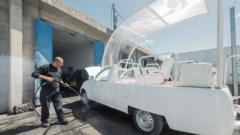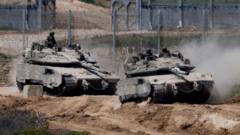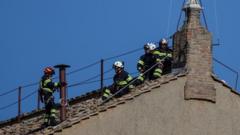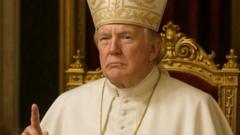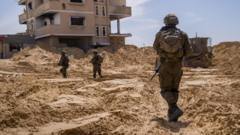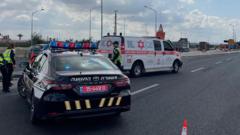With a profound understanding of a politically complex region and strong interfaith relationships, Pizzaballa is seen as a wildcard in the succession debate.
Italian Cardinal Emerges as Potential Successor to Pope Francis

Italian Cardinal Emerges as Potential Successor to Pope Francis
Cardinal Pierbattista Pizzaballa's unique experience may position him as a leading candidate in the upcoming papal conclave.
In a time resonating with both crisis and opportunity, Cardinal Pierbattista Pizzaballa has stepped into the spotlight as a potential successor to Pope Francis. Currently serving as the Latin patriarch of Jerusalem, Pizzaballa’s recent offer to serve as a hostage in exchange for the safety of kidnapped Israeli children amidst ongoing conflicts in the region has amplified his visibility within ecclesiastical circles and beyond. His experience spans over three decades in Jerusalem—a city sacred to Judaism, Christianity, and Islam—which he entered following his ordination at the young age of 25.
As an Italian, Pizzaballa's ascent could signal a shift back to a papacy held by a national of the country that has historically wielded great influence within the Vatican, particularly following a nearly 50-year absence. However, his candidacy is not without controversy. Many perceive him as an outsider due to his extensive time spent in the Middle East, making certain church hierarchies hesitant about his potential alignment with traditional Vatican perspectives.
Among his peers, there is hesitance regarding his relative youth—at 60, he is considered a candidate for longevity in the role, reminiscent of Pope John Paul II's lengthy tenure. Pizzaballa’s respect for traditional rites and practices may appeal to conservative factions; still, his stances on contentious issues remain somewhat ambiguous, posing a challenge as cardinals prepare for what is expected to be a pivotal conclave in the Church’s future. The intersection of his international experience and the intricate dynamics of church politics creates a unique narrative as the Church contemplates its next steps in an ever-evolving world.
As an Italian, Pizzaballa's ascent could signal a shift back to a papacy held by a national of the country that has historically wielded great influence within the Vatican, particularly following a nearly 50-year absence. However, his candidacy is not without controversy. Many perceive him as an outsider due to his extensive time spent in the Middle East, making certain church hierarchies hesitant about his potential alignment with traditional Vatican perspectives.
Among his peers, there is hesitance regarding his relative youth—at 60, he is considered a candidate for longevity in the role, reminiscent of Pope John Paul II's lengthy tenure. Pizzaballa’s respect for traditional rites and practices may appeal to conservative factions; still, his stances on contentious issues remain somewhat ambiguous, posing a challenge as cardinals prepare for what is expected to be a pivotal conclave in the Church’s future. The intersection of his international experience and the intricate dynamics of church politics creates a unique narrative as the Church contemplates its next steps in an ever-evolving world.

